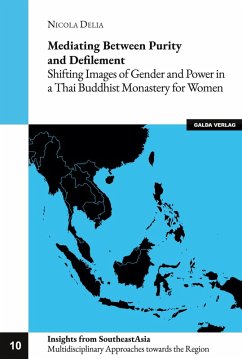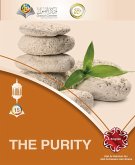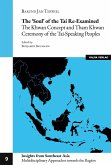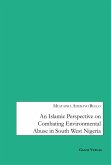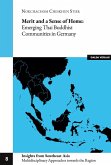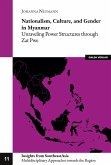This book investigates shifting gender dynamics in a Buddhist monastery for women in Northern Thailand. Based on ethnographic fieldwork with a community of female monastics in the province of Chiang Mai, the study explores women's agency in recently establishing, with success, the region's first known order of fully ordained Buddhist nuns (bhikkhuni). Central to the investigation are tensions arising from novel images of women's bodies clothed in saffron robes that have historically been associated with male power and prestige. The study asks how local veneration of charismatic nuns is reconciled with longstanding beliefs in a female capacity to defile or destroy sacred potency. Time-honoured notions of menstrual pollution are revisited, as are ways in which these are reproduced as well as reconfigured in the female monastery. Particular attention is also paid to solidarity from local monks with women's controversial ordination projects in Chiang Mai. The book draws on concepts of practice and performativity, ascetic charisma and protective power. In so doing it highlights processes by which female monastics in a Northern Thai context navigate fluid gender boundaries as they lay claim to Buddhist merit and spiritual potency of a kind long attributed in Thailand to monks. Inspired by a proposal put forward by Nicola Tannenbaum for the study of Thai gender, these findings are in turn linked to constructions of power and gendered access to it observed across Southeast Asia.ABOUT THE SERIESDevelopments in the field of area studies - goaded by the analytical deconstruction of world regions as such - have deeply affected the knowledge production on societies and cultures located in these politicized compartmentalization of the globe.With this series, the editors and authors wish to contribute to a reformulation of area studies that emphasizes the continuing epistemic value of contextualized knowledge production that is firmly rooted in concrete places.Starting with the notion of Southeast Asia, books published in this series will contribute to a more nuanced understanding of regionality based on a multidisciplinary approach.The series represents an oulet for young scholars intending to publish their degree theses and dissertations; and for established scholars who are looking for a place to republish out-of-print books, edited volumes or themed collections of their own papers and articles.We also invite scholarly collectives to publish collaborative works or edited volumes on topics that usually will not attract the attention of big presses due to their transdisciplinary orientation or the niche character of their topic.Our overall motivation is to maintain Southeast Asian studies as a critical and self-reflexive academic field.EDITORIAL BOARDDr. Benjamin Baumann, Chief EditorPD Dr. Daniel BultmannProf. Caroline S. HauProf. Vincent HoubenProf. Peter A. JacksonProf. Guido SprengerProf. Barend Jan TerwielDr. Xue Li
Bitte wählen Sie Ihr Anliegen aus.
Rechnungen
Retourenschein anfordern
Bestellstatus
Storno

